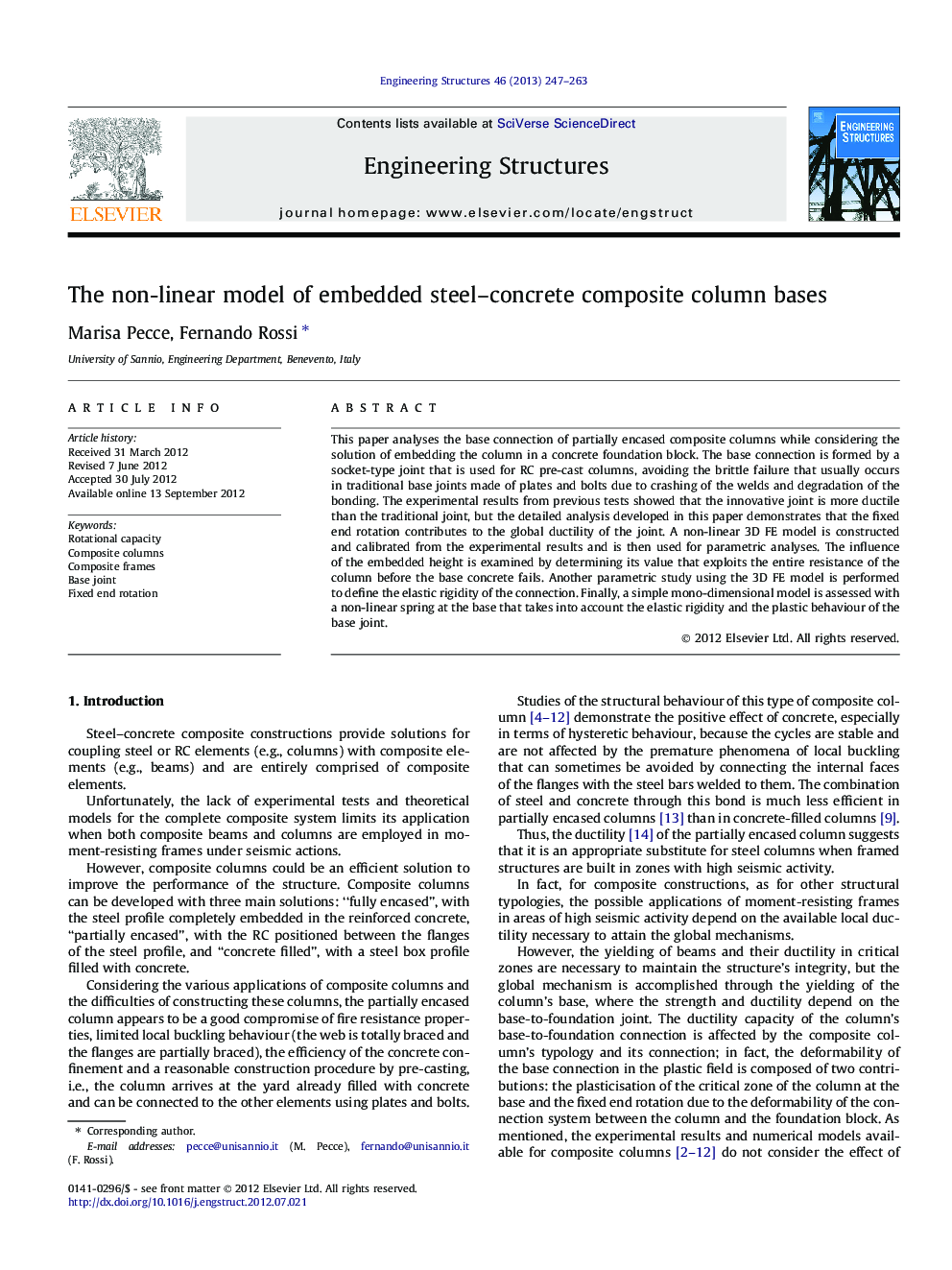| کد مقاله | کد نشریه | سال انتشار | مقاله انگلیسی | نسخه تمام متن |
|---|---|---|---|---|
| 267326 | 504399 | 2013 | 17 صفحه PDF | دانلود رایگان |

This paper analyses the base connection of partially encased composite columns while considering the solution of embedding the column in a concrete foundation block. The base connection is formed by a socket-type joint that is used for RC pre-cast columns, avoiding the brittle failure that usually occurs in traditional base joints made of plates and bolts due to crashing of the welds and degradation of the bonding. The experimental results from previous tests showed that the innovative joint is more ductile than the traditional joint, but the detailed analysis developed in this paper demonstrates that the fixed end rotation contributes to the global ductility of the joint. A non-linear 3D FE model is constructed and calibrated from the experimental results and is then used for parametric analyses. The influence of the embedded height is examined by determining its value that exploits the entire resistance of the column before the base concrete fails. Another parametric study using the 3D FE model is performed to define the elastic rigidity of the connection. Finally, a simple mono-dimensional model is assessed with a non-linear spring at the base that takes into account the elastic rigidity and the plastic behaviour of the base joint.
The load–displacement curves with various embedded heights, Hp, for the socket type base column connection (HE280B partially encased).Figure optionsDownload as PowerPoint slideHighlights
► We examined a socket type base connection of partially encased composite columns.
► The test results showed that the innovative joint is more ductile than the traditional one.
► The fixed end rotation contributes to the global ductility of the joint.
► A non-linear 3D FEM is calibrated and is then used for parametric analyses.
► A simple 1D model is assessed with a non-linear spring for socket type base joint.
Journal: Engineering Structures - Volume 46, January 2013, Pages 247–263